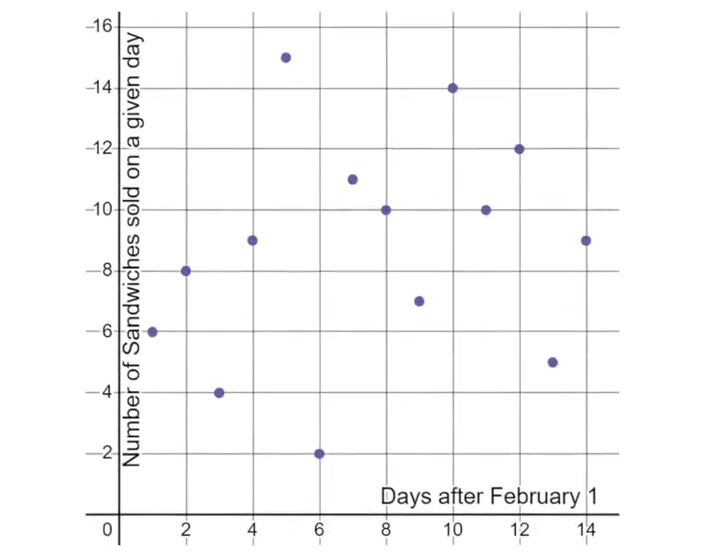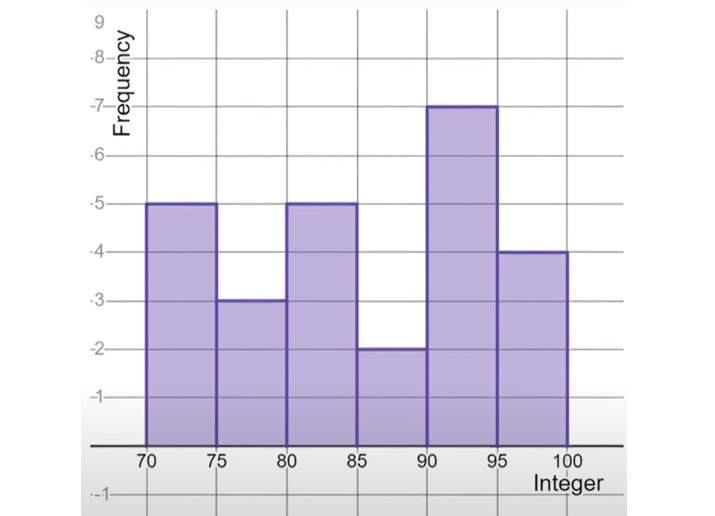FACTORISE INVOLVING EXPONENTIAL FUNCTIONS
What is exponential function ?
An exponential
function is defined by
f(x) = ax
(where a is greater than 0 but it is not equal to 1 and x is any real number)
Note :
If the variable is negative, the function is undefined for -1 < x < 1.
We can factorize the exponential function by using the laws of exponents.
Factorise the following.
Example 1 :
3n+2 - 9
Solution :
Given, 3n+2 – 9
By using the product rule of exponents
am+n = am . an
= [(3n . 32) – 9]
= [(3n . 9) – 9]
= 9(3n – 1)
So, factored form is 9(3n – 1)
Example 2 :
5(2n) + 2n+2
Solution :
= 5(2n) + (2n . 22)
= 5(2n) + (2n . 4)
= 5(2n) + 4(2n)
= 9(2n)
So, factored form is 9(2n)
Example 3 :
3n+2 + 3n+1 + 3n
Solution :
= (3n . 32) + (3n . 31) + 3n
= 9(3n) + 3(3n) + 1(3n)
= 13(3n)
So, factored form is 13(3n)
Example 4 :
2n+1 + 3(2n) + 2n-1
Solution :
2n+1 + 3(2n) + 2n-1
Using the rule am-n = am/an
= (2n . 21) + 3(2n) + (2n/21)
= 2(2n) + 3(2n) + (2n/21)
= 2n(2+3+1/2)
= 2n[(4+6+1)/2]
= 2n[11/2]
= 11(2n-1)
Example 5 :
4x + 8(2x) + 15
Solution :
= 4x + 8(2x) + 15
By using the power rule in exponents (ax)y = axy, we get
= (22)x + 8(2x) + 15
= (2x)2 + 8(2x) + 15
Let u = 2x,
= u2 + 8u + 15
Now, we have the quadratic equation form,
u2 + 8u + 15
By factorization, we get
(u + 5) (u + 3)
By replacing u = 2x, we get
(2x + 5) (2x + 3)
So, the factored form is (2x + 5) (2x + 3)
Example 6 :
4x + 6(2x) - 7
Solution :
= (22)x + 6(2x) - 7
= (2x)2 + 6(2x) - 7
Let u = 2x,
= u2 + 6u - 7
Now, we have the quadratic equation form,
u2 + 6u - 7
By factorization, we get
(u + 7) (u - 1)
Replacing 2x, we get
(2x + 7) (2x - 1)
So, factored form is (2x + 7) (2x - 1)
Example 7 :
9x - 3(3x) - 10
Solution :
Given, 9x - 3(3x) - 10
= (32)x - 3(3x) - 10
= (3x)2 - 3(3x) - 10
Let u = 3x,
= u2 - 3u - 10
Now, we have the quadratic equation form,
u2 - 3u - 10
By factorization, we get
(u + 2) (u - 5)
By replacing u = 3x, we get
(3x + 2) (3x - 5)
So, factored form is (3x + 2) (3x - 5)
Example 8 :
9x - 6(3x) + 8
Solution :
Given, 9x - 6(3x) + 8
= (32)x - 6(3x) + 8
= (3x)2 - 6(3x) + 8
Let u = 3x,
u2 - 6u + 8
By factorization, we get
(u - 2) (u - 4)
By replacing u = 3x, we get
(3x - 2) (3x - 4)
So, the solution is (3x - 2) (3x - 4)
Example 9 :
25x + 4(5x) - 12
Solution :
Given, 25x + 4(5x) - 12
= (52)x + 4(5x) - 12
= (5x)2 + 4(5x) - 12
Let u = 5x,
= u2 + 4u - 12
Now, we have the quadratic equation form,
u2 + 4u - 12
By factorization, we get
(u - 2) (u + 6)
By replacing u = 5x, we get
(5x - 2) (5x + 6)
So, the solution is (5x - 2) (5x + 6)
Example 10 :
64x + 3(8x) - 4
Solution :
Given, 64x + 3(8x) - 4
= (82)x + 3(8x) - 4
= (8x)2 + 3(8x) - 4
Let u = 8x,
= u2 + 3u - 4
Now, we have the quadratic equation form,
u2 + 3u - 4
(u - 1) (u + 4)
By replacing u = 8x, we get
(8x - 1) (8x + 4)
So, the solution is (8x - 1) (8x + 4).
Example 11 :
4x - 2x - 20
Solution :
Given, 4x - 2x - 20
= (22)x - (2x) - 20
Let u = 2x,
= u2 - u - 20
Now, we have the quadratic equation form,
u2 - u - 20
(u - 5) (u + 4)
By replacing u = 2x, we get
(2x - 5) (2x + 4)
So, the solution is (2x - 5) (2x + 4).
Example 12 :
25x + 5x - 2
Solution :
Given, 25x + 5x - 2
= (52)x + (5x) - 2
Let u = 5x,
= u2 + u - 2
Now, we have the quadratic equation form,
u2 + u - 2
(u + 2) (u - 1)
By replacing u = 5x, we get
(5x + 2) (5x - 1)
So, the solution is (5x + 2) (5x - 1).
Example 13 :
4x + 9(2)x + 18
Solution :
Given, 25x + 5x - 2
= (52)x + (5x) - 2
Let u = 5x,
= u2 + u - 2
Now, we have the quadratic equation form,
u2 + u - 2
(u + 2) (u - 1)
By replacing u = 5x, we get
(5x + 2) (5x - 1)
So, the solution is (5x + 2) (5x - 1).
Kindly mail your feedback to v4formath@gmail.com
We always appreciate your feedback.
©All rights reserved. onlinemath4all.com
Recent Articles
-
Digital SAT Math Problems and Solutions (Part - 254)
Aug 12, 25 07:26 AM
Digital SAT Math Problems and Solutions (Part - 254) -
Digital SAT Math Problems and Solutions (Part - 253)
Aug 10, 25 10:00 PM
Digital SAT Math Problems and Solutions (Part - 253) -
Digital SAT Math Problems and Solutions (Part - 252)
Aug 10, 25 02:03 AM
Digital SAT Math Problems and Solutions (Part - 252)

